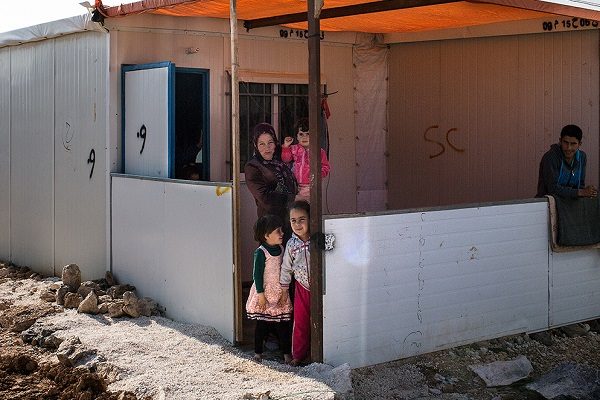
Partners in global health have made tremendous progress in the last decade in the fight against HIV, tuberculosis and malaria. By involving people affected by these diseases, and working together with civil society, the private sector and governments, we have seen progress way beyond what seemed possible only a few years ago. But achieving impact was relatively easy; the need was so great that almost anything we did had impact.
As this week’s historic World Humanitarian Summit recognised, we face some very serious challenges and the road ahead calls for new thinking, more nuanced investments and more strategic partnerships. The fight against the three diseases is more important than ever in a world increasingly affected by natural disasters, conflicts and economic crises. The worst refugee crisis on record is affecting all parts of the world and, as people move, so do diseases. This new reality is why the Global Fund has prioritized work in challenging operating environments: countries that experience disease outbreaks, natural disasters, armed conflicts and weak governance.
The Global Fund was created as a partnership to end three of the most devastating infectious diseases to hit humanity. How we evolve with the changing landscape and adjust our working to different contexts so that no one is left behind. will determine our future success.
As countries move along the development continuum – a trajectory that occurs in different ways at different speeds in each country – we must adopt differentiated approaches to better serve the people in need. This is particularly the case when crises strike. The Ebola crisis in West Africa and the ongoing refugee and migration challenge have revealed unique problems in providing health care to those affected. Effective prevention, treatment and care requires that we follow the people – regardless of their status, circumstance, or ethnic and religious background. We have to think beyond conventional disease or development paradigms, and focus on the person.
The Global Fund is putting a stronger focus on fragile and crisis contexts, aiming to increase coverage and reach key and vulnerable populations, particularly women and girls, migrants, people living with HIV, and marginalized groups such as people who use drugs, sex workers and men who have sex with men. In such difficult circumstances, these groups are even more likely to be pushed to the margins – making it even more important to ensure they have access to health care, no matter where they are.
Investing in challenging operating environments is one of the Global Fund’s strategic priorities towards which we have directed US$4 billion – one third of all our investments – over the past two years. This is particularly critical to our mission as crisis and other difficult contexts account for one third of the global disease burden for HIV, tuberculosis and malaria.
Last month, I traveled to Sierra Leone, a country that was hugely affected by the Ebola crisis. During the peak of the outbreak, the Global Fund tapped into special emergency financing to support the mass drug administration of artemisinin-based combination therapy for malaria. Patients with Ebola and malaria display similar symptoms such as fever, headache and aching joints. Thus, decreasing malaria incidence reduced the burden of malaria on already overstretched health systems and, furthermore, with fewer malaria patients, it also reduced the chances of fatal misdiagnosis of Ebola. That effort, in partnership with the World Health Organization and UNICEF, reached over 95 percent of targeted households. The Global Fund partnership has supported similar initiatives in Liberia and Guinea, that were also affected by Ebola.
I was also deeply impressed by Sierra Leone’s efforts to build resilient and sustainable systems for health. The Ebola outbreak clearly showed that countries with stronger health systems are better able to manage ongoing health threats like AIDS, TB and malaria – and emerging threats like Ebola.
The Global Fund partnership is also using a differentiated approach in the Middle East, which is suffering the effects of conflict and coping with humanitarian crises and large numbers of internally displaced people and refugees. Earlier this year, I visited the Zaatari refugee camp in the Jordanian desert where the Global Fund partnership is supporting the provision of essential TB prevention, diagnosis and treatment to Syrian refugees. In refugee camps, preventing and treating such diseases not only protects already weakened people, it frees up critical resources to provide other health services and prevents diseases from spreading.
The only way to end these diseases is by reaching everyone, empowering communities and removing all barriers to the provision of services. The Global Fund is not a humanitarian organization per se, but we are committed to upholding the principles that safeguard humanity. The 2017-2022 Global Fund Strategy commits to increase our impact in fragile contexts.
We have the tools to defeat HIV, tuberculosis and malaria, but these scourges are still with us. Putting human beings at the centre of our response means going beyond the work we have already done. We have to work hard to reach key populations and cater to each country’s unique circumstances, enhancing our flexibility and responsiveness and strengthening our partnership.
We must grasp the historic opportunity to become better people and societies built on the firm foundation of an inclusive human family.
Further Reading on E-International Relations
- Ebola Response in the Democratic Republic of Congo: A Bridge to Peace?
- The EU’s Global Health Crisis Management: Past and Present
- American Global Health Internationalism and the Ebola Crisis in West Africa
- Containing Coronavirus: Resilience in Times of Catastrophe
- Chaos and Corruption in West Africa: Lessons from Sierra Leone
- Africa’s Disproportionate COVID-19 Pandemic